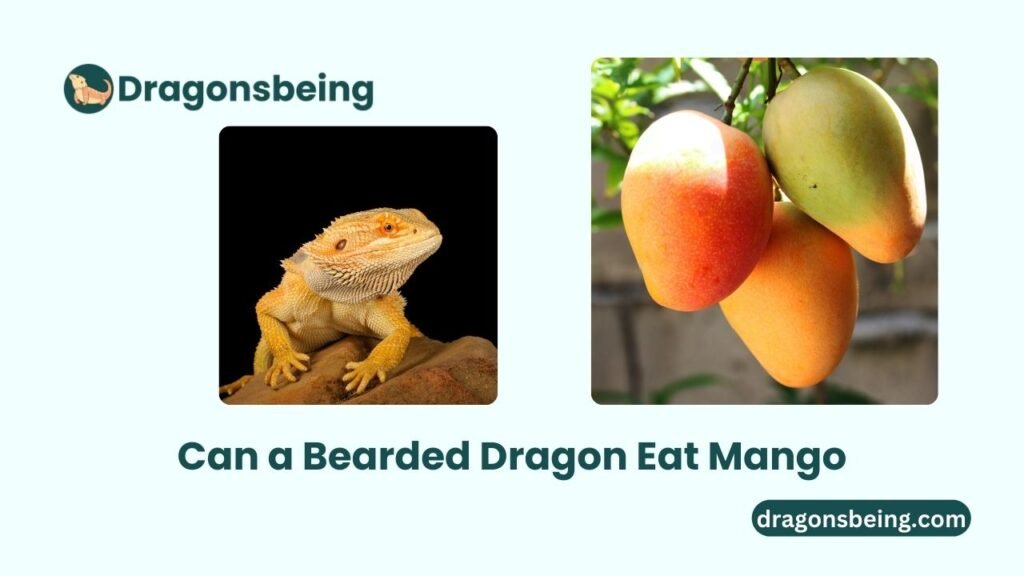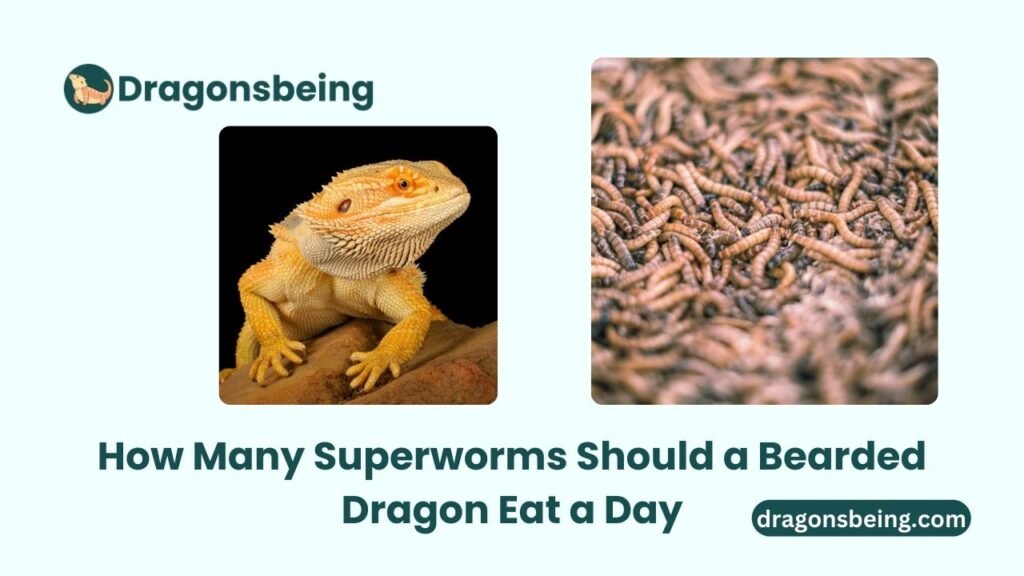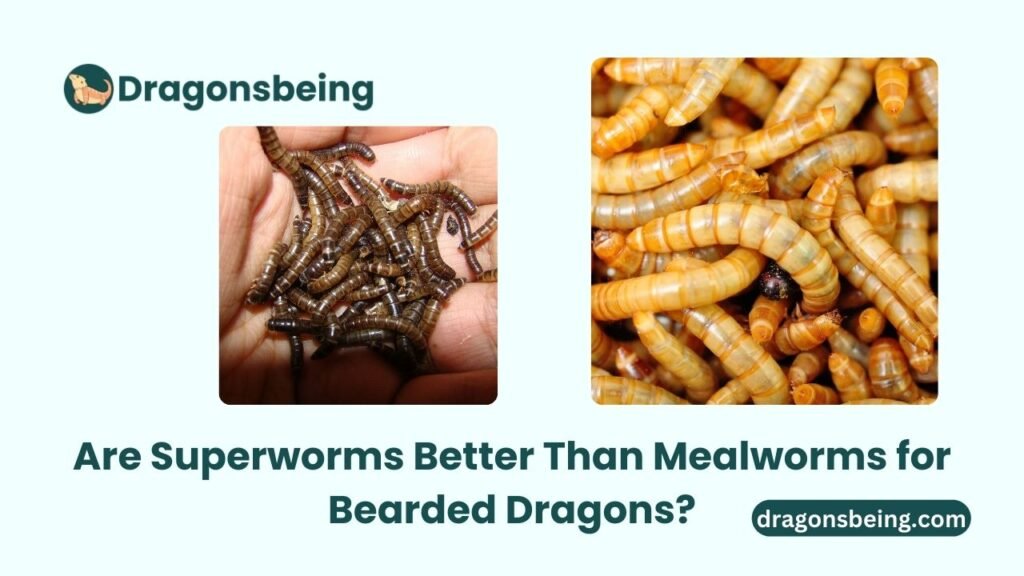Yes, bearded dragons can eat mango, but it should be offered in moderation. Too much mango can lead to digestive issues due to its high sugar content.
Bearded dragons are popular reptiles, loved for their friendly nature and unique appearance. As pet owners, providing a balanced diet is essential for their health.
Fruits like mango can be a tasty treat, but they shouldn’t be the main part of their diet.
Bearded dragons thrive on a mix of leafy greens, vegetables, and protein sources like insects. Understanding the right foods for your bearded dragon ensures they stay healthy and active.
Always prepare fruits properly, cutting them into small, manageable pieces. This approach helps prevent choking and makes it easier for your pet to enjoy their snack safely.
Mango: Nutritional Value And Benefits
Mango is a delicious fruit that many enjoy. Bearded dragons can also eat mango in moderation. This fruit offers various nutrients and health benefits. Understanding its nutritional value helps in making informed choices for your pet.
Vitamins And Minerals In Mango
| Nutrient | Amount (per 100g) |
|---|---|
| Vitamin A | 1086 IU |
| Vitamin C | 60 mg |
| Vitamin E | 0.16 mg |
| Calcium | 18 mg |
| Potassium | 168 mg |
Mango contains essential vitamins and minerals. Vitamin A supports vision and immune health. Vitamin C boosts overall health. Vitamin E helps protect cells. Calcium strengthens bones. Potassium supports muscle function.
Health Benefits Of Mango For Bearded Dragons
- Hydration: Mango has high water content.
- Digestive Health: Fiber aids digestion.
- Antioxidants: Protects cells from damage.
- Immune Support: Vitamins enhance immunity.
- Energy Boost: Natural sugars provide energy.
Feeding mango can offer many health benefits. Hydration helps keep your bearded dragon active. Fiber in mango improves digestive health. Antioxidants fight free radicals. Vitamins strengthen the immune system. Natural sugars provide a quick energy boost.
Feeding Mango To Bearded Dragons: Safe Practices
Feeding mango to your bearded dragon can be a tasty treat. However, it’s crucial to follow safe practices. Proper portion sizes and preparation methods are essential for your pet’s health.
Proper Portion Sizes
Bearded dragons can enjoy mango in moderation. Too much sugar can harm them. Here are some guidelines for portion sizes:
| Age of Bearded Dragon | Recommended Mango Portion |
|---|---|
| Juvenile (up to 6 months) | 1 teaspoon per week |
| Adult (6 months and older) | 1 tablespoon per week |
Always monitor your dragon’s reaction after eating mango. Look for any signs of discomfort.
Preparation And Serving Tips
Properly preparing mango is vital. Follow these simple steps:
- Choose ripe mango: Select a fruit that is soft and sweet.
- Wash thoroughly: Clean the mango to remove pesticides.
- Peel the skin: Remove the skin before serving.
- Cut into small pieces: Make sure the pieces are bite-sized.
Serve mango alongside other vegetables. This adds variety to your dragon’s diet.
Keep mango pieces fresh. Store any leftovers in the fridge. Use within two days to prevent spoilage.
Always observe your bearded dragon during feeding. Make sure they enjoy the mango safely.
Potential Risks And Considerations
Bearded dragons can enjoy a variety of fruits. Mango is one of them. However, there are some important risks to consider. Understanding these risks helps ensure your pet stays healthy.
Sugar Content In Mango
Mango contains high levels of sugar. This can be harmful for bearded dragons. Here are key points to remember:
- Too much sugar can lead to obesity.
- Obesity causes health problems, like diabetes.
- Limit mango to occasional treats, not daily meals.
Monitor your dragon’s overall diet. Balance it with vegetables and protein. This helps reduce sugar intake.
Possible Allergic Reactions
Some bearded dragons may have allergic reactions to mango. Symptoms can vary. Watch for these signs:
- Swelling around the mouth.
- Difficulty breathing.
- Skin irritation or rashes.
Introduce mango slowly. Offer a small piece first. Wait to see how your dragon reacts. If you notice any unusual symptoms, stop feeding mango immediately.
| Symptoms | Action |
|---|---|
| Swelling | Stop feeding mango |
| Breathing issues | Contact a vet |
| Skin rash | Monitor and consult a vet |
Understanding these risks ensures your bearded dragon remains healthy. Choose fruits wisely and always consult a vet if unsure.
Frequency And Quantity: How Much Is Too Much?
Understanding how often and how much mango a bearded dragon can eat is crucial. Mango is a tasty treat, but it should not become a main food source. Balance is key to a healthy diet.
Balancing Mango With Other Foods
Mango should be a small part of your bearded dragon’s diet. Here’s a simple guide:
| Food Type | Frequency | Quantity |
|---|---|---|
| Leafy Greens | Daily | 1-2 cups |
| Fruits (like Mango) | 2-3 times a week | 1-2 tablespoons |
| Protein (Insects) | Every other day | 5-10 insects |
Mix mango with other fruits for variety. Avoid serving too much mango at once. Too much can upset your dragon’s stomach.
Signs Of Overfeeding
Overfeeding can lead to health issues. Watch for these signs:
- Weight gain
- Lethargy
- Constipation
- Stomach swelling
- Refusal to eat
Adjust portions if you notice these signs. Keeping track of food intake helps maintain health. Regular vet check-ups can also aid in monitoring your dragon’s diet.
Alternatives To Mango In A Bearded Dragon’s Diet
Bearded dragons enjoy a variety of foods. While mango is safe, other fruits are also nutritious. Offering different options keeps your dragon healthy and happy.
Other Safe Fruits For Bearded Dragons
Several fruits are safe for bearded dragons. Here are some great alternatives:
- Blueberries – Packed with antioxidants.
- Strawberries – Sweet and full of vitamins.
- Peaches – Juicy and nutritious.
- Pears – A crunchy treat rich in fiber.
- Bananas – High in potassium but should be limited.
| Fruit | Nutritional Benefits |
|---|---|
| Blueberries | Rich in antioxidants and low in sugar. |
| Strawberries | High in vitamin C and low in calories. |
| Peaches | Good source of vitamins A and C. |
| Pears | High in fiber, supports digestion. |
| Bananas | High in potassium; offer sparingly. |
Diversifying The Diet For Optimal Health
Variety is key for a healthy diet. A mixed diet prevents boredom and ensures balanced nutrition.
Include leafy greens, vegetables, and insects. Here are some safe options:
- Kale – Nutrient-rich green.
- Collard Greens – High in calcium.
- Carrots – Good for vision and health.
- Crickets – High in protein.
- Mealworms – Great for added protein.
Mix fruits and vegetables in small portions. This approach promotes a balanced diet. Always wash fruits and chop them into small pieces. Monitor how your bearded dragon reacts to new foods.
Expert Opinions And Research Findings
Understanding what bearded dragons can eat is crucial for their health. Experts have differing views on feeding mango to these reptiles. Some recommend it as an occasional treat. Others caution against high-sugar fruits.
Veterinarian Recommendations
Veterinarians often emphasize a balanced diet for bearded dragons. Here are key points from their recommendations:
- Mango is safe in moderation.
- Limit sugary fruits. Too much sugar can cause health issues.
- Mix with leafy greens. This provides essential nutrients.
- Watch for digestive issues. Monitor your dragon’s reaction.
Always consult a veterinarian before changing your pet’s diet. They can provide tailored advice based on your bearded dragon’s needs.
Recent Studies On Bearded Dragons And Fruit
Recent studies have explored the effects of fruit on bearded dragons. Researchers found interesting insights:
| Fruit Type | Benefits | Risks |
|---|---|---|
| Mango | High in vitamins A and C | High sugar content |
| Banana | Rich in potassium | Can cause constipation |
| Berries | Antioxidants | Acidic, may upset stomach |
Researchers recommend feeding fruits occasionally. Balance is essential. Keep the majority of the diet as vegetables and protein sources.
Conclusion: Balancing A Bearded Dragon’s Diet With Mango
Feeding your bearded dragon mango can be fun. It offers various vitamins and minerals. However, moderation is key. A balanced diet ensures your pet stays healthy.
Summary Of Do’s And Don’ts
| Do’s | Don’ts |
|---|---|
| Offer mango as a treat. | Feed mango every day. |
| Chop mango into small pieces. | Give large chunks of mango. |
| Mix mango with greens. | Serve mango alone. |
| Monitor for any digestive issues. | Ignore signs of upset stomach. |
Final Thoughts On Feeding Mango To Bearded Dragons
Mango can be a tasty addition to your bearded dragon’s diet. It contains vitamins A and C. These vitamins support immune health and skin. Always introduce new foods slowly.
Watch your dragon’s reaction to mango. Some may enjoy it, while others might not. If your bearded dragon shows signs of discomfort, stop serving mango.
A balanced diet includes a variety of vegetables, fruits, and insects. Mango should only be a small part of this mix. A well-rounded diet keeps your bearded dragon healthy and happy.
Frequently Asked Questions
Can Bearded Dragons Eat Mango Safely?
Yes, bearded dragons can safely eat mango in moderation. It’s rich in vitamins but also high in sugar.
What Are The Benefits Of Mango For Bearded Dragons?
Mango provides essential vitamins A and C, supporting their immune system and overall health.
How Often Can I Feed Mango To My Bearded Dragon?
Offer mango as an occasional treat, about once every two weeks, to maintain a balanced diet.
Is Mango Good For Baby Bearded Dragons?
Baby bearded dragons can eat mango, but it should be given sparingly due to high sugar content.
Should Mango Be Peeled Before Feeding?
Yes, peeling mango is recommended to remove potential pesticides and ensure a safe eating experience.
Can Mango Cause Diarrhea In Bearded Dragons?
Yes, excessive mango consumption may lead to diarrhea due to its high sugar content. Moderation is key.
Conclusion
Mango can be a tasty treat for your bearded dragon. It offers vitamins and hydration, enhancing their diet. Always serve in moderation to avoid digestive issues. Monitor your pet’s reaction to mango, ensuring it suits their taste and health. Keep your bearded dragon happy and healthy with balanced meals.

Hi, I’m Dr. Michelle Mayers, a veterinary professional with a deep passion for animal health and well-being. Over the years, I’ve dedicated my life to caring for animals and helping pet owners better understand their furry, feathered, or scaly companions. On my blog, Dragonsbeing, I share insights, tips, and stories that aim to educate, inspire, and connect with fellow animal lovers. Join me at Dragonsbeing as we explore the fascinating world of veterinary care and celebrate the special bond between humans and animals!


